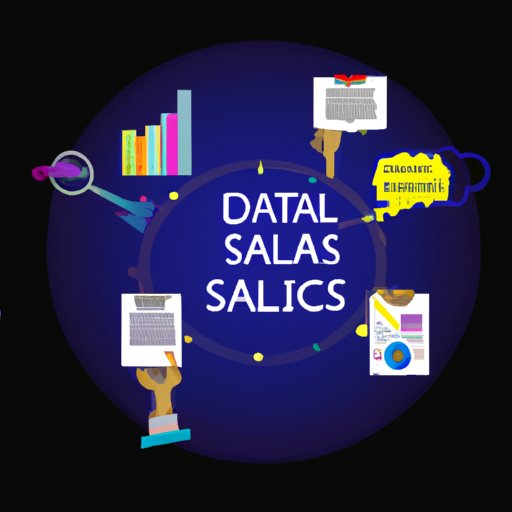Introduction
Data selling is the process of collecting, aggregating, and reselling data to other companies or organizations. This data can include customer information, financial records, web analytics, and more. As businesses become increasingly reliant on data-driven decision making, data selling has become an important tool for providing customers with valuable insights and competitive advantages.
Starting a data selling business requires careful planning and research, but it can be an incredibly lucrative venture. With the right strategies in place, data sellers can generate significant revenue by selling their services to other organizations.

Steps for Setting up a Data Selling Business
Before you can begin selling data, there are several steps you must take to legally establish your business. Here are a few key steps for setting up a data selling business:
Forming a Legal Entity
The first step in starting a data selling business is to form a legal entity. Depending on the type of business you plan to run, this may include registering as a limited liability company (LLC), sole proprietorship, or corporation. Each type of entity has its own advantages and disadvantages, so it’s important to understand which option best suits your needs before moving forward.
Obtaining Necessary Licenses and Permits
Once you’ve established your legal entity, you’ll need to obtain any necessary licenses and permits. Depending on where you plan to operate your business, this may include a business license, tax ID number, and/or other permits. It’s also important to familiarize yourself with local, state, and federal laws related to data selling and privacy.
Creating a Pricing Structure
Once you have the necessary licenses and permits in place, you’ll need to create a pricing structure for your data. This should include both the cost of acquiring the data and the cost of delivering the data to customers. You should also consider offering discounts for bulk purchases or subscription plans.
Data Security and Privacy Considerations
When selling data, it’s essential to ensure that customer information is safeguarded at all times. Data security and privacy should be a top priority for data sellers, as any breach of customer information could result in serious legal and financial repercussions. Here are a few tips for protecting customer data:
The Importance of Safeguarding Customer Information
It’s essential to ensure that customer data is stored securely and that access is restricted to authorized personnel only. It’s also important to regularly review your security protocols and make sure they are up to date.
Best Practices for Data Security and Privacy
In addition to restricting access to customer data, data sellers should also implement strong encryption protocols and other measures to protect customer information. It’s also important to ensure that customers are aware of how their data will be used and that they have the ability to opt out of having their data sold.

Researching the Market and Competitors
Before launching your data selling business, it’s important to gain insights into the industry and identify opportunities to differentiate your business. Here are a few tips for researching the market and competitors:
Gaining Insights Into the Data Selling Industry
Researching the data selling industry can help you identify potential customers and understand what types of data are in demand. It’s also important to stay up-to-date on industry trends and regulations.
Identifying Opportunities to Differentiate Your Business
By studying the competition, you can identify areas where you can stand out from the crowd. Look for ways to provide added value to customers and differentiate your services from those of your competitors.

Developing a Marketing and Advertising Strategy
Once you’ve established your business and identified opportunities to differentiate your services, it’s time to develop a marketing and advertising strategy. Here are a few tips for creating an effective marketing and advertising plan:
Strategies for Attracting Customers
Once you’ve identified your target audience, it’s important to devise a plan for reaching them. This may include leveraging online platforms such as social media and search engine optimization, as well as traditional marketing tactics such as direct mail and print advertising.
Tips for Creating Effective Ads
When creating ads, it’s important to keep the target audience in mind. Make sure to include a clear call-to-action and focus on the benefits of using your services. It’s also important to test different versions of the ad and track the results to determine which ones are most effective.
Conclusion
Starting a data selling business can be a profitable venture, but it requires careful planning and research. By forming a legal entity, obtaining necessary licenses and permits, and implementing robust data security and privacy measures, data sellers can ensure their business is compliant and secure. Additionally, by researching the market and competitors and developing a comprehensive marketing and advertising plan, data sellers can attract customers and generate revenue.
With the right strategies in place, data selling can be a lucrative business opportunity. By following the steps outlined above, you can position your business for success.
(Note: Is this article not meeting your expectations? Do you have knowledge or insights to share? Unlock new opportunities and expand your reach by joining our authors team. Click Registration to join us and share your expertise with our readers.)
